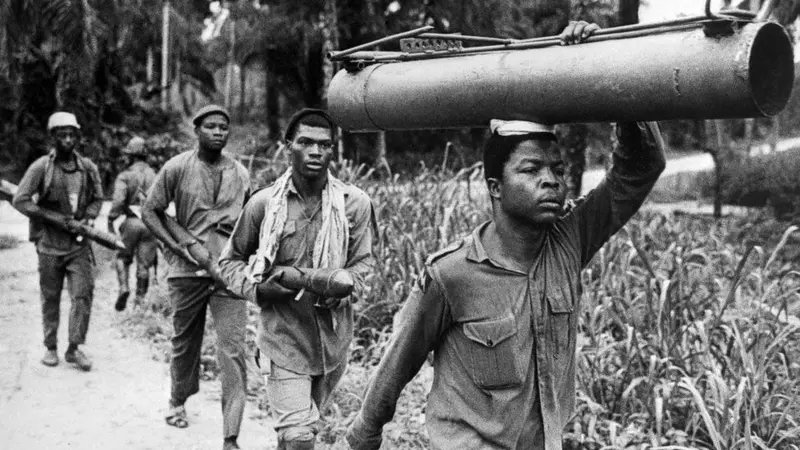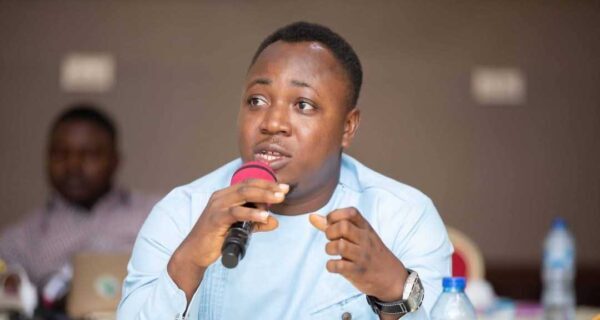Biafra Heroes Day: Remembrance amid Nigeria’s insecurity

Biafran combatants in the Nigerian civil war (1967-1970). Photo Credit- Bar. Ifeanyi Ejiofor/X
On May 30, 2025, Nigeria pauses to commemorate Biafra Heroes Day, a day etched in the nation’s history as a tribute to the fallen heroes of the Biafran War (1967-1970), which claimed up to 2 million lives. Declared by the Indigenous People of Biafra (IPOB), this day marks the 1967 declaration of Biafra’s independence by Lt. Col. Chukwuemeka Odumegwu Ojukwu, an act that sparked a brutal civil war rooted in ethnic, political, and economic tensions. As IPOB urges a sit-at-home protest across the South East, the remembrance is overshadowed by Nigeria’s ongoing insecurity crisis, drawing mysterious parallels to the unrest that birthed the Biafran struggle. This piece is set to explore the historical significance of Biafra Heroes Day and reflects on how Nigeria’s current insecurity repeats the failures of the past.
The history of Biafra Heroes Day
Biafra Heroes Day, observed annually on May 30, commemorates the 1967 declaration of the Republic of Biafra, a secessionist state in Nigeria’s Eastern Region led by the Igbo people. The Medium article by Aria Fresca (2022) notes that IPOB established this day to honor the “fallen heroes of Biafra,” who fought against what they saw as genocidal oppression by the Nigerian state under General Yakubu Gowon. The war, fueled by pogroms against Igbos in the North, where thousands were killed in 1966, saw Biafra’s resistance met with a federal blockade that starved over 1 million civilians, mostly women and children. The conflict ended in 1970 with Biafra’s surrender, but its scars continues.
The day is a call to relive and relish the promise of Biafra, a vision of self-determination and prosperity that the defunct Eastern Region once embodied. IPOB’s push for remembrance, despite government crackdowns on mere identification with Biafra is often criminalized has kept the memory alive. In Owerri and other eastern cities, the streets are quiet today as residents observe the sit-at-home, with IPOB’s Radio Biafra broadcasting tributes to heroes like Ojukwu, whose leadership, though flawed, inspired a generation.
RELATED STORIES
Democracy in chains: Nigeria’s urgent call for electoral reform
Nigerian politics: Between interest and power, where is the honour?
NFIU: Nigeria’s abduction crisis and failed governance
How Nigeria’s insecurity crisis repeats this failure
As Biafra Heroes Day unfolds, Nigeria’s current insecurity crisis casts a dark shadow, mirroring the unrest that preceded the civil war. The NFIU reported 735 mass abductions since 2019 and over 6,000 conflict fatalities in 2024, driven by Boko Haram, ISWAP, and banditry, with the North West and North East as hotspots, regions that once suffered terribly by the break out of war. Now, non-state actors, otherwise bandits control rural areas in Zamfara and Niger states, while the military struggles to secure beyond “super camps,” a failure that repeats Gowon’s inability to protect Easterners in the 1960s massacre.
Political instability compounds the crisis, much like it did before the war. Series of politicians defections and unstable party coalitions has sparked fears of new threats. Critics highlight Nigeria’s lack of ideological parties, an instrument that fueled the ethnic tensions of the 1960s and now enables the dominance of a single party. Economic despair: hyper-inflation and 70% below the poverty line just reflects the pre-war economic marginalization of the East, driving unrest then and now.
The cost of Nigeria’s insecurity
The difference between the Biafran era and today’s insecurity are crystal clear for those who remember. Survivors of the war, shared, similar economic hardship, and now children are kidnapped from schools. It feels like nothing has changed, just the never-ending circle growing larger. Thousands of Biafrans were displaced during the war, now millions desperately need humanitarian aid and live like strangers in their own country.
The government’s response, or lack thereof, deepens the wounds. Tinubu’s April 29th plea for Nigerians not to criticize his mismanagement reflects a leadership as disconnected as Gowon’s was, ignoring root causes like poverty and unemployment. The International Crisis Group estimates insecurity cost Nigeria $15 billion in 2024, yet funds are diverted to debt servicing, rather than security or reconciliation efforts.
Conclusion
Biafra Heroes Day is more than a remembrance, it is a mirror reflecting Nigeria’s failures. The war’s ethnic tensions, political failures, and human suffering find echoes in today’s abductions, conflict deaths, and economic struggles. Nigeria must confront its past to secure its future, addressing insecurity, fostering unity, and tackling poverty head-on. For millions of Nigerians, Biafra Heroes Day is a call to action, not just memory. Nigeria risks repeating history unless it learns from it. The fallen heroes of Biafra deserve more than tributes they deserve a nation that ensures their sacrifices were not in vain. On this solemn day, Nigeria must choose: heal the wounds of the past, or let them bleed again.




